Intelligent Automation for Publishers, Evolved
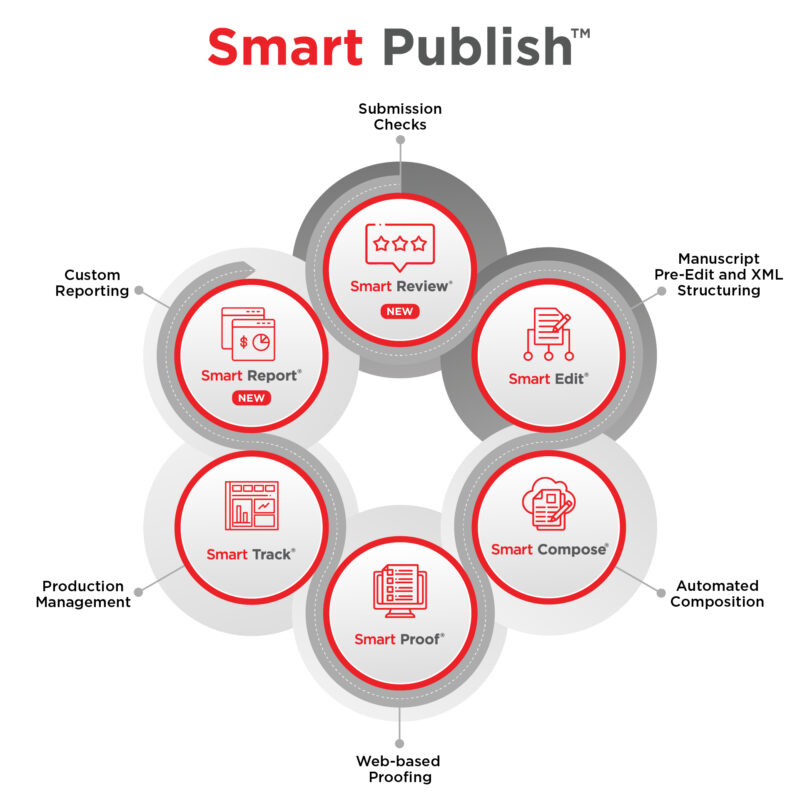
Smart Publish™, KGL’s high-speed, quality-assured production platform, can take manuscripts from acceptance to author proofs in 24 hours. By uniting human intelligence and care with sophisticated technology such as NLP, AI, automated templates, and workflow engines, Smart Publish alleviates wait times while achieving best-in-class editorial and typographic quality with record-setting speed to publication.
 Smart Review™
Smart Review™
A new integrated tool that automates a variety of tasks that occur during the peer review process: screening for common submission checklist elements like disclosures, metadata, and image integrity, identifying reviewers, identifying conflicts of interest between authors and reviewers, and assessing language for either manuscript triage or to determine the level of copyediting post acceptance. New integrations with common manuscript submission systems and proprietary checks for paper mills and data compliance ensure efficient workflow management and research integrity.
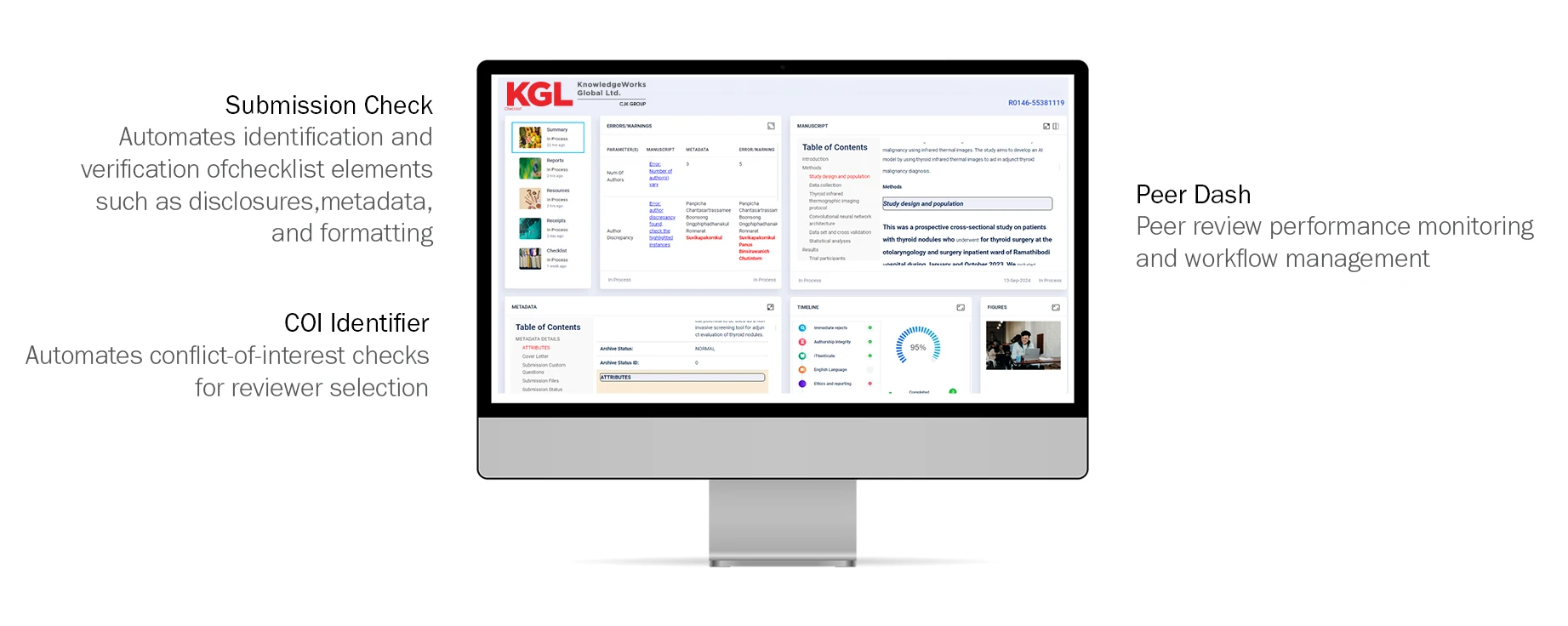
 Smart Edit®
Smart Edit®
A pre-edit, copyedit, and conversion system that incorporates natural language processing and AI to benefit publishers in terms of editorial
quality and better, faster markup and delivery to output channels. Smart Edit comprises several components that run together seamlessly, transforming raw, unedited manuscripts into edited, structured, and valid XML files. Contextual copyediting updates include chunk tokenization and machine learning enhancements, making Smart Edit an independent self-learning editorial program for the future.
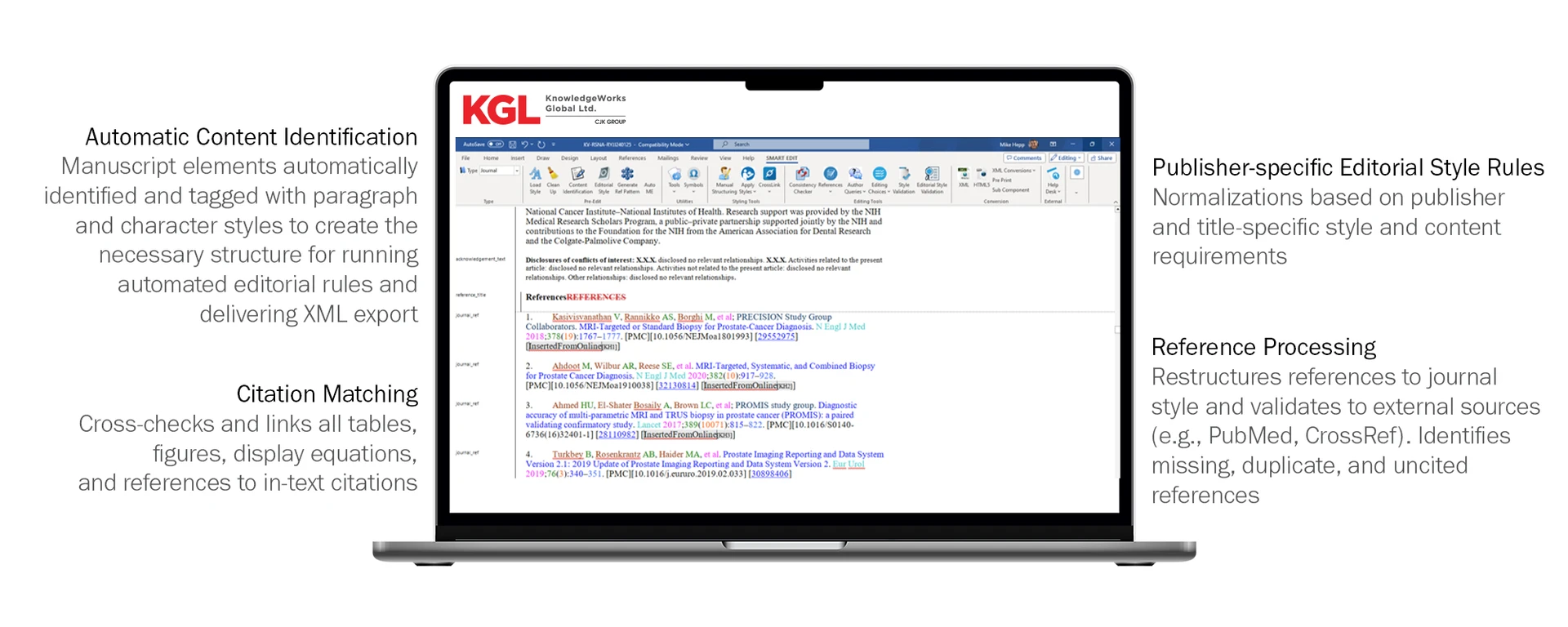
 Smart Compose®
Smart Compose®
A fully automated production engine that ingests structured output from Smart Edit to generate professionally composed page proofs. Designed to work with 3B2, InDesign, and LaTeX composition platforms that support full automation, the module delivers instant PDF/ePub generation. Publisher specified styles guarantee consistent, high-quality layouts. The latest features include built-in validations, and the ability to dynamically combine articles, generate TOCs, and create accessible PDFs.
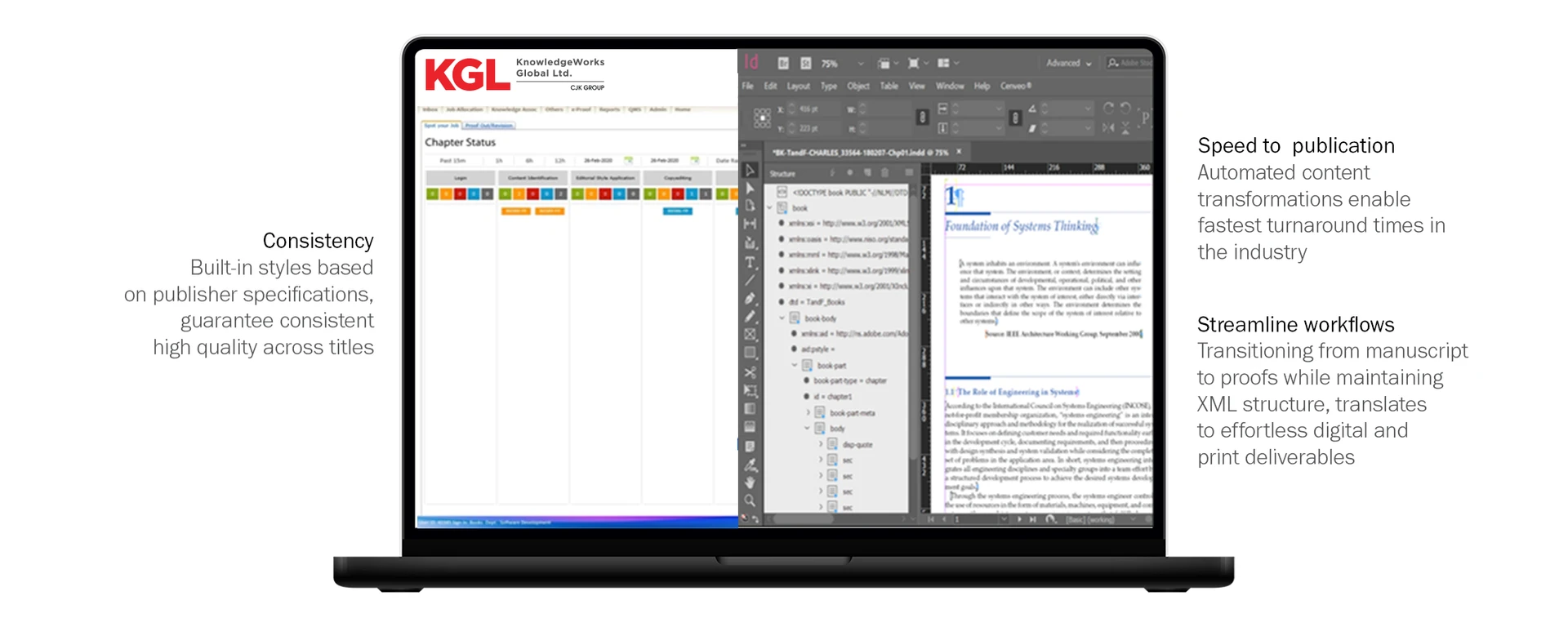
 Smart Proof®
Smart Proof®
A web-based proof review and correction tool for updating content in real time while maintaining the source XML, now supporting LaTeX and rendering equations using MathJAX. The automated roundtripping of text-only changes in Smart Proof means that authors and editors receive revised proofs in less than an hour. The module has received extensive feature enhancements and additions, including collaborative editing, figure and table handling, security, spell check, commenting, reference and citation editing, internal and external linking, accessibility, and more.
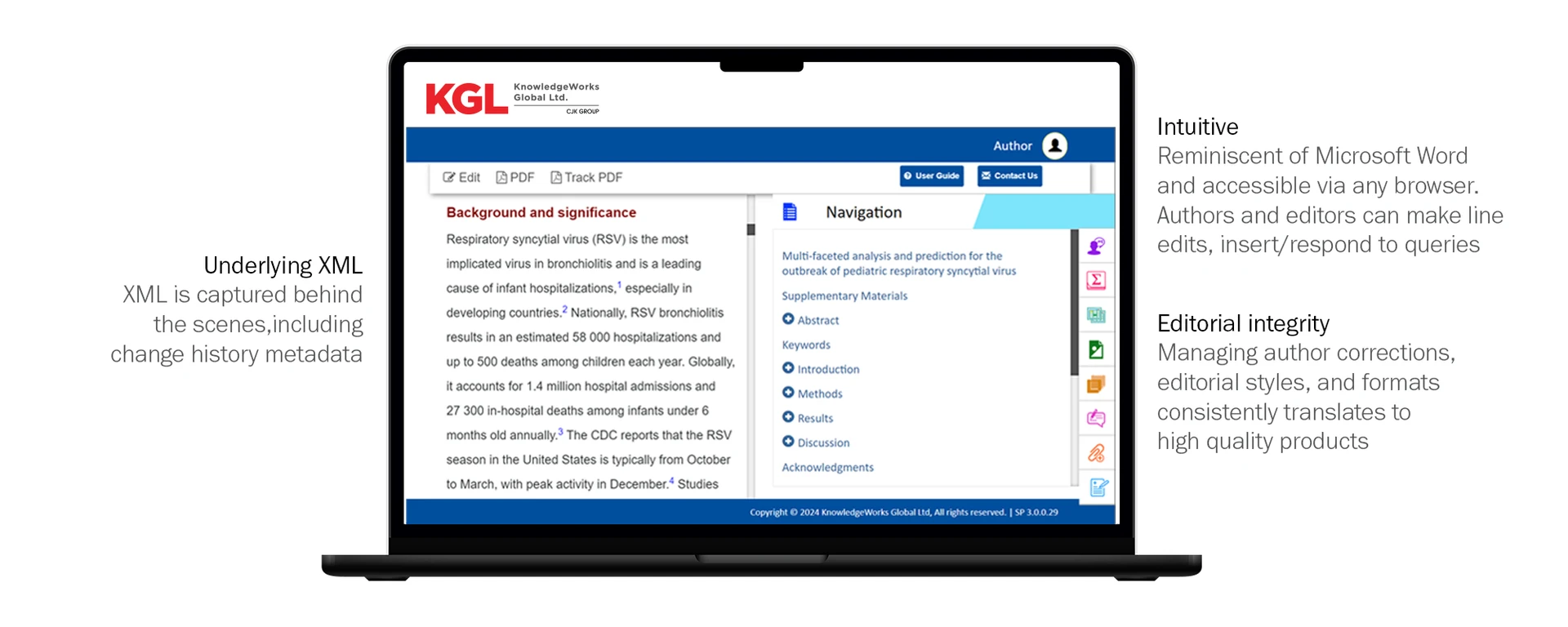
 Smart Track®
Smart Track®
A cloud-based workflow and file management system that manages user tasks and logs all content transactions. The user interface presents a
workflow overview, which includes extensive metadata management, file access, and task assignment that improves both system and individual performance. Smart Track has moved to the next level of automation with ability to manage content based on metadata/dynamic system reports, automated event-based workflow identification, customizable user interface, and HTTPS endpoints.
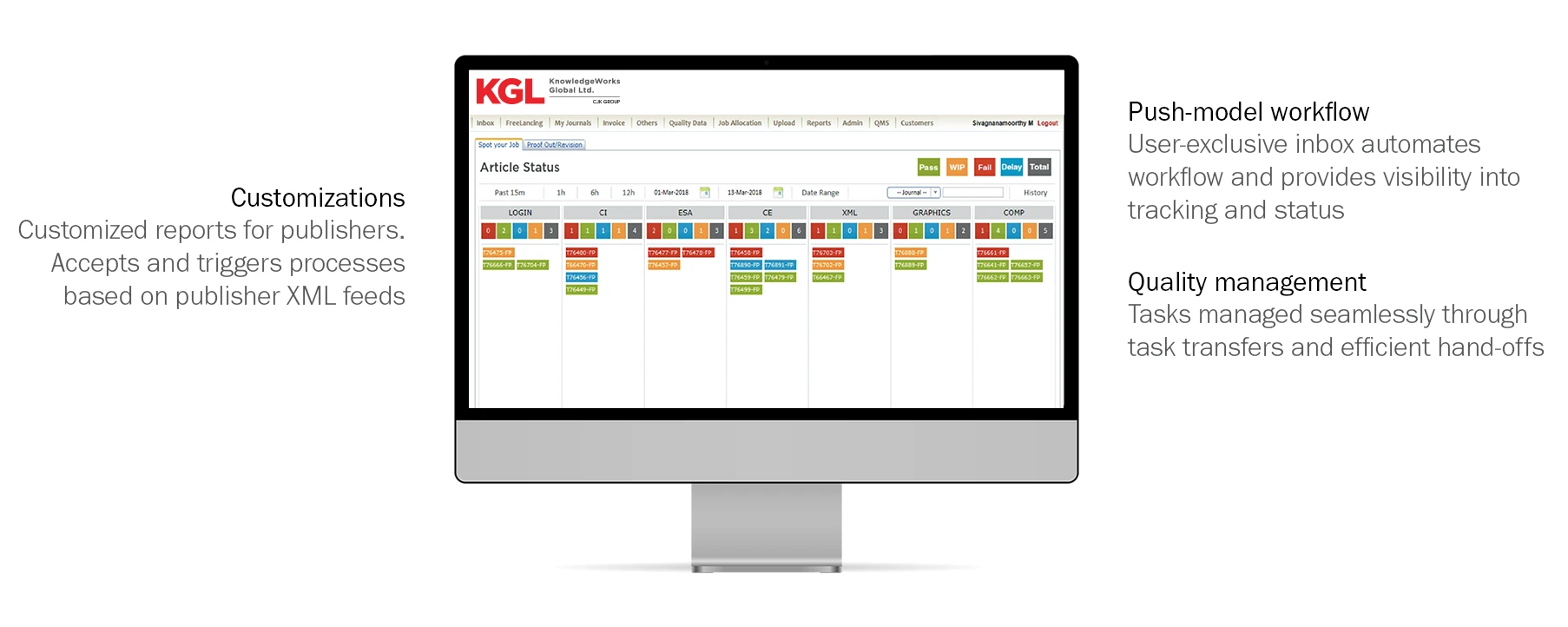
 Smart Report®
Smart Report®
A new dashboard that integrates with Smart Track to provide complete access to article and chapter data, including key metadata from
connected systems, and enables publishers to generate advanced, custom reports. The configurable and interactive dashboard provides standard and customizable charts and graphs that track the most common elements of production, while delivering the information with historical and current data trends to monitor performance.
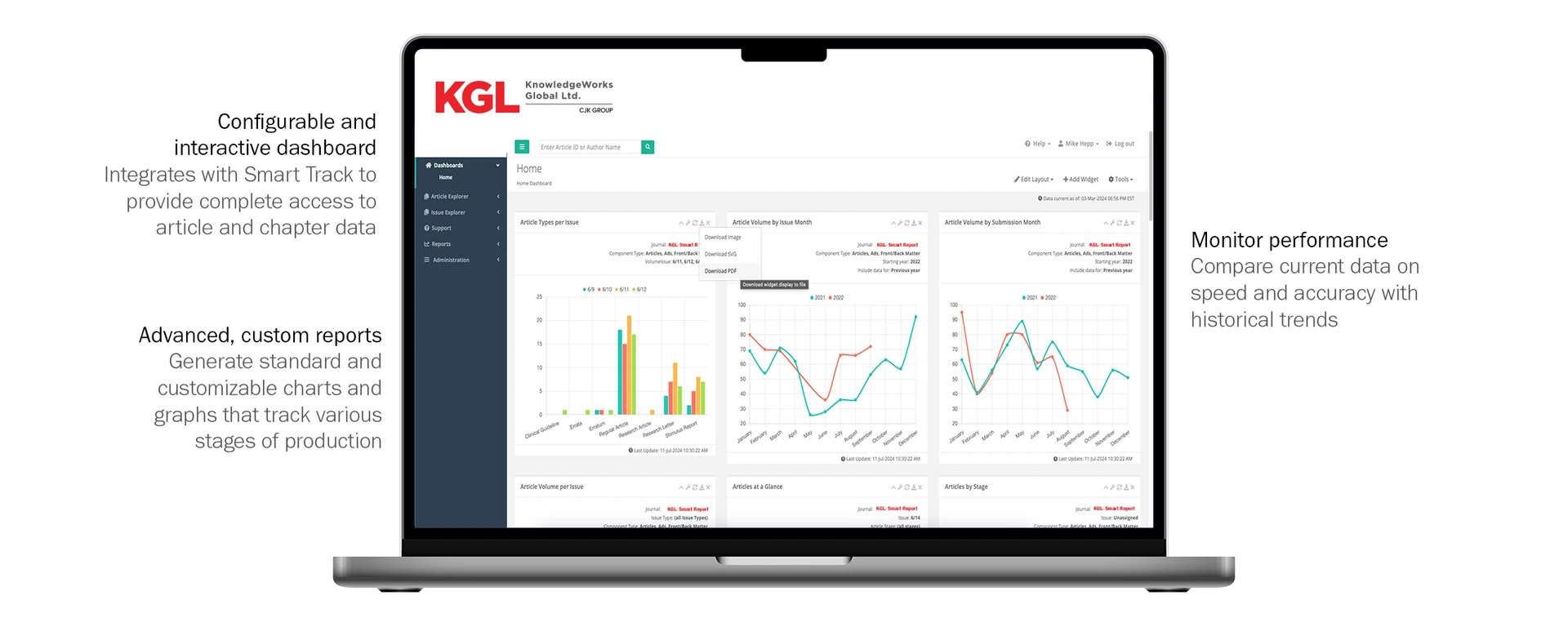
what our Customers say about us
Latest Insights

In the second installment of our KGL Summer School series, we’re turning our attention to science myths that come from outside the classroom—from space battles to desert survival tips to that old “we only use 10% of our brains” trope.

KGL Accucoms discusses Couperin.org, the French consortium representing over 250 academic institutions that has chosen not to renew national agreements with major publishers due to pricing concerns and a focus on open science.

Patricia (Patty) Baskin reflects on how thoughtful mentoring transforms both mentors and mentees, with real-world examples from across editorial roles.

